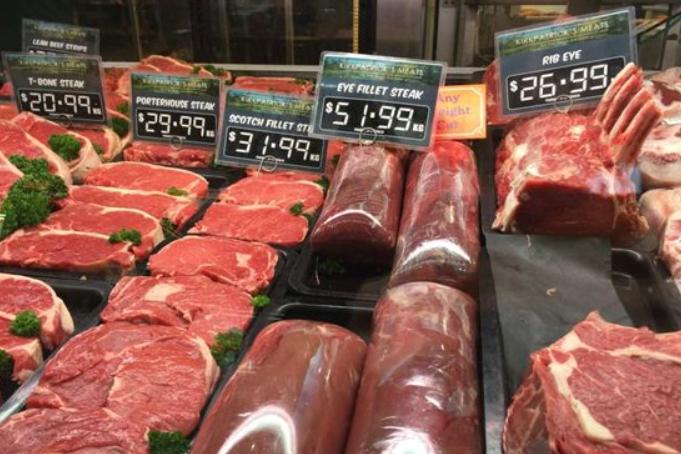
Australian beef exports continue to climb into 2024. In July, Australia set a new record for beef exports, exporting 129,998 tonnes, breaking the previous record set in March 2015. Strong international demand and increased beef production have combined to drive the beef industry to unprecedented levels.
Demand for high-quality beef continues to grow worldwide, particularly in emerging markets such as Asia, where there is a growing appetite for Australian beef. The steady development of Australia's cattle industry and the improvement of climate conditions have increased beef production and provided a strong guarantee for the increase in exports. The latest record of Australian beef export volume has also brought some impacts. First, the impact on the Australian economy. Beef export is an important part of the Australian economy, and the increase in export volume directly drives the development of the relevant industrial chain, including breeding, processing and logistics, thus promoting the growth of the Australian economy. The increase in beef exports means more foreign exchange earnings, which is of great significance for improving Australia's international payment capacity and economic strength. With the growth of beef exports, the scale of enterprises in the related industry chain has expanded, thus creating more job opportunities and easing employment pressure.
The second is the impact on the international market. The increase in Australian beef exports makes the supply of beef in the international market more adequate, which helps to stabilize the market price and meet the needs of consumers. At the same time, it also intensifies the competition in the international market. The high quality and price competitiveness of Australian beef make beef exporters in other countries face greater competitive pressure. The increase in exports also reflects the strengthening of trade relations between Australia and other countries. Through beef exports, Australia has established closer economic and trade ties with other countries, which have provided convenient conditions for the Australian beef industry. The growth of market demand in various countries has also played a positive role in the increase of Australian beef exports, and also promoted the process of trade liberalization and economic globalization.
The third is the impact on consumers and aquaculture. The increase in export volume means that more Australian beef enters the international market, and consumers have more opportunities to taste high-quality Australian beef. While increased competition in the market may affect prices to some extent, overall, the increase in Australian beef exports has helped stabilize market prices, enabling consumers to purchase quality beef products at reasonable prices. As consumer interest in sustainable products increases, the Australian cattle industry is also becoming more sustainable. Steady growth in Australia's cattle industry and improved weather conditions have led to an increase in beef production. After a long drought, Australia's cattle industry has gradually recovered and herd numbers have recovered, providing ample supplies for exports. In addition, the Australian cattle industry is also constantly improving the level of breeding technology and management to improve the quality and yield of beef. The increase in exports has prompted the cattle industry to adopt more environmentally friendly and sustainable farming practices to meet the needs of the international market. In addition, the increase in export volume has encouraged the Australian cattle industry to carry out industrial upgrading and technological innovation to improve product quality and output. This will help improve the overall competitiveness of the Australian cattle industry.
In summary, Australian beef exports are now at a record high, which has a profound impact on the Australian economy, international markets, consumers and the Australian cattle industry. These impacts are not only reflected in economic growth and the increase in foreign exchange earnings, but also promote competition in the international market and strengthen trade relations, provide consumers with more choices and stable prices of products, and stimulate the industrial upgrading and sustainable development of the Australian cattle industry.

The European Commission released a package of measures for the automotive industry on Tuesday (December 16th), proposing to relax the requirements related to the "ban on the sale of fuel vehicles" by 2035.
The European Commission released a package of measures for …
Venezuela's Vice President and Oil Minister Rodriguez said …
On December 16 local time, the Ministry of Space Science Ex…
Recently, a highly anticipated phone call between the defen…
Right now, the world's major central banks are standing at …
Recently, according to Xinhua News Agency, the news of a tr…